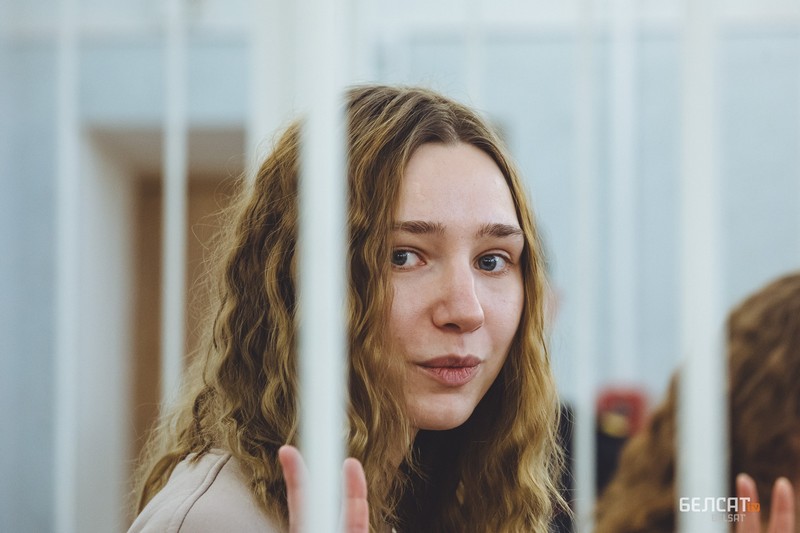Imprisoned Belsat TV journo Darya Chultsova also listed as ‘person prone to extremism’

Camerawoman Darya Chultsova has been placed on the preventive register in Zhodzina prison as a person ‘prone to extremism and other destructive actions’.
It is the prison authorities that informed our colleague of the decision; however, she is not aware of the reason for it.
Being added to the above mentioned list means more severe treatment of an inmate and restricting their rights even in prison, e.g. there is a special place in the cell where such prisoner has to be when a jailkeeper enters; they are also expected to be regularly called in for preventive conversations.
In late March, it became known that Darya’s companion in misfortune Katsyaryna Andreyeva was found herself in the same situation. The corresponding decision was taken at a meeting of the special commission, where the prisoner was asked whether she recognised her crime, and Katsyaryna answered she did not.
The two journalists’ case was considered in Frunzenski district court of Minsk within three days in February. The investigators claim the Belsat crew ‘coordinated protesters and called for further actions’, but the two media workers were just performing their professional duties by reporting from the scene. Moreover, in accordance with the authorities’ version, the livestream of the journalists resulted in the stoppage of 13 buses, 3 trolleybuses and 3 streetcar routes as well as the damage to the city transport agency Minsktrans (around 11,562 rubles). Public prosecutor Alina Kasyanchyk demanded the two girls serve a two-year prison term each and their working equipment be confiscated in profit of the state. The defence lawyers asked the court to acquit the defendants due to the lack of evidence, but the judge took heed of the prosecution’s opinion.
On February 18, judge Natallya Buhuk passed a verdict of guilty and sentenced Katsyaryna Andreyeva and Darya Chultsova to two years of imprisonment in a minimum-security penal colony.
Andreyeva’s lawyer Syarhei Zikratski voiced the main theses of the defence. According to them, one cannot qualify the events of November 15 as ‘actions that grossly violate public order’. International law guarantees citizens the right to peaceful assembly, and on that day, Belarusians just exercised their right, the lawyers state. In their opinion, the prosecution failed to present any facts of disobedience to officers’ lawful demands, which is a necessary condition for starting prosecution under this article. However, the verdict reads that the disobedience occurred. Moreover, they did not provide any proofs of the allegation that it was the protesters’ actions that caused a traffic disruption on that Sunday.
Katsyaryna Andreyeva and Darya Chultsova were arrested on November 15 for broadcasting live a violent dispersal of a rally in memory of murdered protester Raman Bandarenka and the destruction of a national memorial in the so called Square of Change by security forces. They were filming and commenting on what was going on from the apartment on the 14th floor of the house on Smarhouski Trakt Street in Minsk, where they had been invited by the hosts. After the rally, armed riot police broke the door to the apartment and detained the crew.
On November 20, they were charged under Part 1 of Article 342 of the Criminal Code (organisation and preparation of actions that grossly violate public order). The girls were kept in custody, transferred to Zhodzina prison and held in separate cells.
On November 24, Belarusian human rights watchdogs recognised Katsyaryna Andreyeva and Darya Chultsova as political prisoners.
 @bajmedia
@bajmedia
